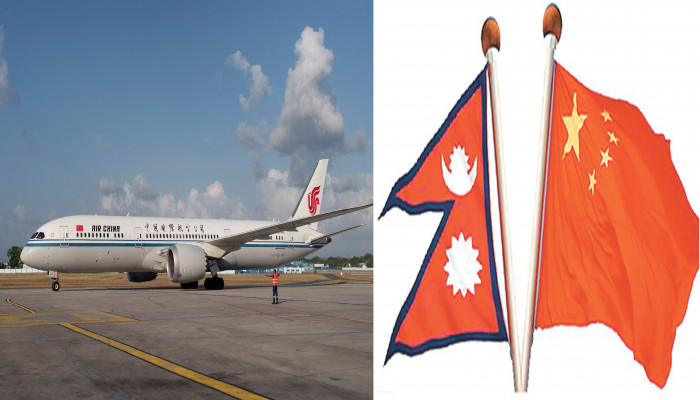Chinese airlines under fire for evading Rs 4 billion VAT in Nepal
- In Reports
- 06:36 PM, Nov 29, 2024
- Myind Staff
Chinese airlines operating in Nepal have allegedly evaded paying Rs 4 billion in Value Added Tax (VAT) collected from their activities in the nation, causing a developing tax compliance dispute. Chinese carriers continue to oppose registration with Nepal's VAT system, alleging hostility to the policy's principles, despite Nepal's repeated attempts to ensure compliance.
Since VAT was introduced on international air services in Nepal's Finance Act 2080 BS, most international airlines have followed the rules, registering for VAT and paying taxes. However, Chinese airlines—Air China, China Southern Airlines, China Eastern Airlines, and Sichuan Airlines—have not complied. Airlines are accused of using diplomatic channels to oppose a new policy. A source from Nepal's Ministry of Finance revealed that the Chinese Embassy in Kathmandu has pressured the Nepalese government, arguing that the VAT imposition goes against international norms.
A senior official from the Ministry of Finance reaffirmed Nepal's stance, saying that all foreign airlines operating in Nepal must follow the country’s tax laws. The official also pointed out that Nepalese companies abroad must comply with foreign laws, and therefore, the same should be expected in return. “Special facilities cannot be provided to Chinese airlines alone,” said the official. “Nepal’s tax system applies to everyone equally.” Ram Prasad Acharya, the Director General of the Inland Revenue Department (IRD), confirmed that talks with Chinese airlines are still ongoing. He mentioned that the airlines suggested paying VAT without registering for it, but the IRD considers this proposal illegal.
The Chinese Embassy has reportedly sent several letters to the Nepalese government asking for an exemption for its airlines. Sources say the embassy even warned that enforcing VAT could negatively affect Nepal’s tourism and its relationship with China. “China’s embassy sent letters before the budget, claiming that taxing international air tickets contradicts basic principles and laws,” a ministry source stated. “Even after that, they have continued lobbying to prevent their airlines from complying.”
The latest financial bill in Nepal requires airlines to charge VAT not only on flights directly flying to Nepal but also on flights that carry passengers from Nepal through connecting flights to other countries. This ensures that VAT is applied to all air tickets bought within Nepal. To help airlines comply, the International Air Transport Association (IATA) set up a system for collecting VAT on tickets starting from Nepal. As a result, many international airlines have registered and started paying VAT in Nepal. However, Chinese airlines are not following this rule, which raises concerns about Nepal's ability to enforce its tax laws fairly. This issue could also affect Nepal’s diplomatic and economic ties with China, one of its major trading partners and investors.
The government of Nepal is determined to enforce VAT compliance. According to Director General Acharya, who stated, “Chinese airlines must follow Nepal’s legal procedures. Payment without VAT registration cannot be considered lawful.”
Currently, China has not paid the Rs 4 billion in VAT, and talks are still ongoing. The key challenge will be whether Nepal can enforce its tax laws without harming its relationship with its northern neighbour, as this will test the country's ability to maintain both fiscal and diplomatic independence.







Comments